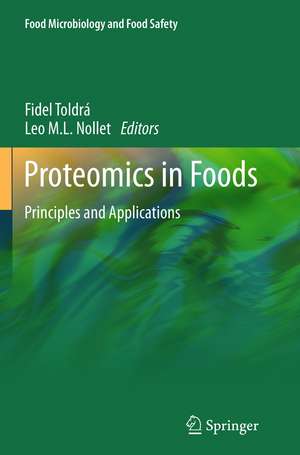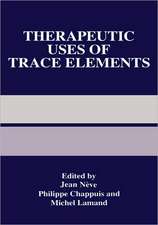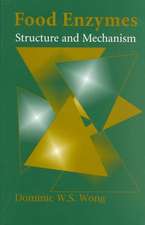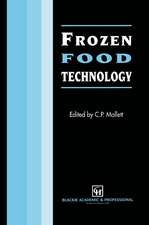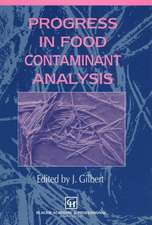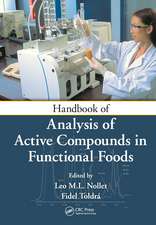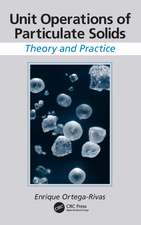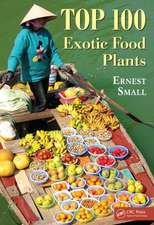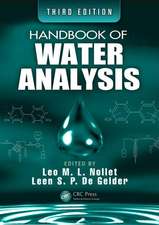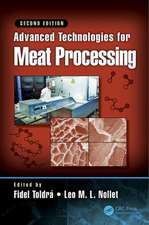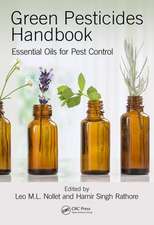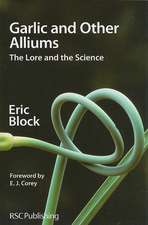Proteomics in Foods: Principles and Applications: Food Microbiology and Food Safety
Editat de Fidel Toldrá, Leo M. L. Nolleten Limba Engleză Paperback – 28 ian 2015
| Toate formatele și edițiile | Preț | Express |
|---|---|---|
| Paperback (1) | 712.05 lei 6-8 săpt. | |
| Springer Us – 28 ian 2015 | 712.05 lei 6-8 săpt. | |
| Hardback (1) | 963.91 lei 6-8 săpt. | |
| Springer Us – 15 dec 2012 | 963.91 lei 6-8 săpt. |
Din seria Food Microbiology and Food Safety
- 18%
 Preț: 1396.43 lei
Preț: 1396.43 lei - 20%
 Preț: 565.92 lei
Preț: 565.92 lei - 18%
 Preț: 1244.89 lei
Preț: 1244.89 lei - 15%
 Preț: 639.73 lei
Preț: 639.73 lei - 18%
 Preț: 785.86 lei
Preț: 785.86 lei - 15%
 Preț: 709.44 lei
Preț: 709.44 lei - 18%
 Preț: 951.29 lei
Preț: 951.29 lei - 18%
 Preț: 1118.75 lei
Preț: 1118.75 lei -
 Preț: 389.70 lei
Preț: 389.70 lei - 5%
 Preț: 398.11 lei
Preț: 398.11 lei - 15%
 Preț: 633.68 lei
Preț: 633.68 lei - 18%
 Preț: 1384.26 lei
Preț: 1384.26 lei - 18%
 Preț: 1486.83 lei
Preț: 1486.83 lei - 23%
 Preț: 906.42 lei
Preț: 906.42 lei -
 Preț: 389.88 lei
Preț: 389.88 lei - 18%
 Preț: 782.87 lei
Preț: 782.87 lei - 18%
 Preț: 1111.97 lei
Preț: 1111.97 lei - 15%
 Preț: 645.28 lei
Preț: 645.28 lei - 18%
 Preț: 722.58 lei
Preț: 722.58 lei - 18%
 Preț: 771.49 lei
Preț: 771.49 lei - 18%
 Preț: 892.42 lei
Preț: 892.42 lei - 18%
 Preț: 1107.73 lei
Preț: 1107.73 lei - 15%
 Preț: 471.53 lei
Preț: 471.53 lei - 18%
 Preț: 1228.29 lei
Preț: 1228.29 lei - 18%
 Preț: 1236.51 lei
Preț: 1236.51 lei - 18%
 Preț: 1388.68 lei
Preț: 1388.68 lei - 5%
 Preț: 718.65 lei
Preț: 718.65 lei - 18%
 Preț: 1217.41 lei
Preț: 1217.41 lei - 18%
 Preț: 1386.92 lei
Preț: 1386.92 lei - 18%
 Preț: 796.76 lei
Preț: 796.76 lei
Preț: 712.05 lei
Preț vechi: 837.70 lei
-15% Nou
Puncte Express: 1068
Preț estimativ în valută:
136.25€ • 142.25$ • 112.76£
136.25€ • 142.25$ • 112.76£
Carte tipărită la comandă
Livrare economică 04-18 aprilie
Preluare comenzi: 021 569.72.76
Specificații
ISBN-13: 9781489996312
ISBN-10: 1489996311
Pagini: 608
Ilustrații: XVIII, 590 p.
Dimensiuni: 155 x 235 x 32 mm
Greutate: 0.84 kg
Ediția:2013
Editura: Springer Us
Colecția Springer
Seriile Food Microbiology and Food Safety, Research and Development
Locul publicării:New York, NY, United States
ISBN-10: 1489996311
Pagini: 608
Ilustrații: XVIII, 590 p.
Dimensiuni: 155 x 235 x 32 mm
Greutate: 0.84 kg
Ediția:2013
Editura: Springer Us
Colecția Springer
Seriile Food Microbiology and Food Safety, Research and Development
Locul publicării:New York, NY, United States
Public țintă
Professional/practitionerCuprins
Part I. Principles of Proteomics.- 1. Understanding the proteome. - 2. Extraction/fractionation techniques for proteins and peptides and Protein digestion.- 3. Primary separation: 2-D electrophoresis.- 4. Primary Separation: Chromatography.- 5. Mass spectrometry applications.- Part II. Food Applications of Proteomics.- 6. Challenges and applications of protemics for analysis of changes in early postmortem meat.- 7. Application of proteomics for analysis of protein modifications in postmortem meat.- 8. Biological markers for meat tenderness of the three main French beef breeds using 2-DE and MS approach.- 9. Dry-cured ham.- 10. Evaluation of fish quality and safety by proteomics techniques.- 11. Farmed and Wild fish.- 12. Fish Authentication.- 13. Proteomics in Milk and Milk Processing.- 14. Cheese processing.- 15. Lactic acid bacteria in fermented foods.- 16. Wine quality.- 17. Eggs.- 18. Fruits and vegetables.- 19. Wheat grain proteomics for the food industry.- 20. Proteomics and applications to food science in rice.- 21. Beer proteomics.- 22. Nutritionally relevant proteins.- 23. Relevance of Peptides Bioactivity in Foods.- 24. The role of proteomics in the discovery of marker proteins of food adulteration.- 25. Evaluation of genetically engineered crops using proteomics.- 26. Microbial proteomics for food safety.- 27. Prion biomarkers.- 28. Proteomics of filamentous fungi.
Notă biografică
Fidel Toldrá is a Research Professor at the Instituto de Agroquímica y Tecnología de Alimentos (CSIC), Valencia, Spain
Leo M. L. Nollet is a Professor at the University College Ghent (Hogeschool Gent), Belgium
Leo M. L. Nollet is a Professor at the University College Ghent (Hogeschool Gent), Belgium
Textul de pe ultima copertă
This book provides readers with the recent advances and state-of-the-art in food proteomics, which constitutes one of the most relevant and rapidly developing areas in food science. The first part covers the principles of proteomics, including an in-depth discussion of the proteome, as well as the extraction and fractionation techniques for proteins and peptides, separation techniques like 2-D electrophoresis and chromatography, and mass spectrometry applications. The second part covers applications to foods, such as quality issues related with post-mortem processes in animal foods, and quality traits for a wide variety of foods like meat, fish, dairy, eggs, wine, beer, cereals, fruits and vegetables. Also discussed are the identification of bioactive peptides and proteins, crucial from a nutritional perspective, and safety issues like food authenticity, detection of animal species in the food, markers of pathogen microorganisms, and identification of prions.
Editors
Fidel Toldrá is a Research Professor at the Instituto de Agroquímica y Tecnología de Alimentos (CSIC), Valencia, Spain
Leo M. L. Nollet is a Professor at the University College Ghent (Hogeschool Gent), Belgium
Editors
Fidel Toldrá is a Research Professor at the Instituto de Agroquímica y Tecnología de Alimentos (CSIC), Valencia, Spain
Leo M. L. Nollet is a Professor at the University College Ghent (Hogeschool Gent), Belgium
Caracteristici
Reference guide on the applications of proteomics in food science Discusses expected trends in food proteomics Edited by internationally recognized experts Includes supplementary material: sn.pub/extras
